










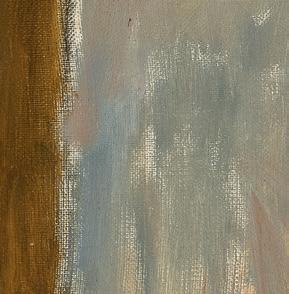
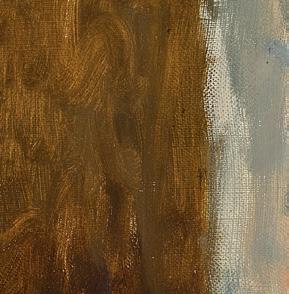
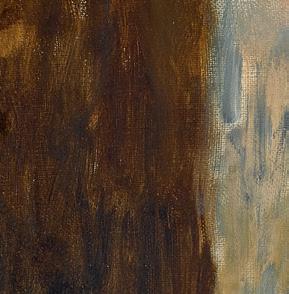
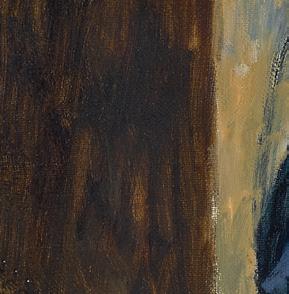
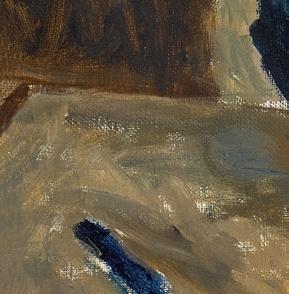
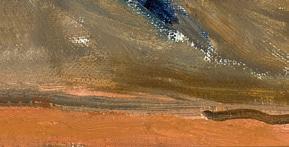


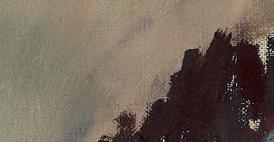



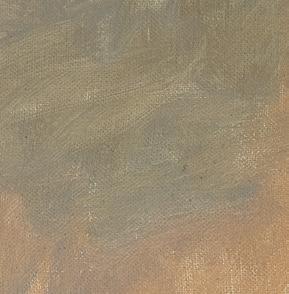
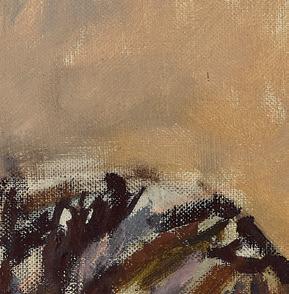
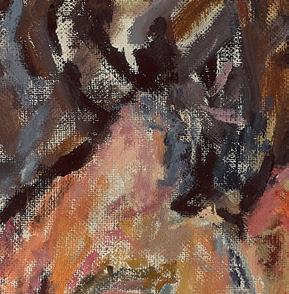
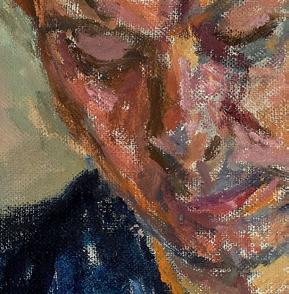
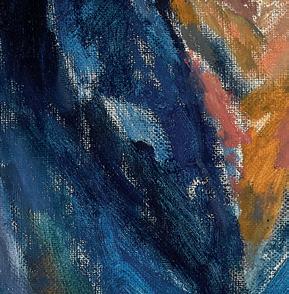
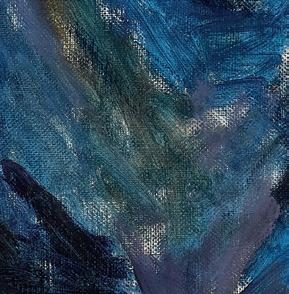
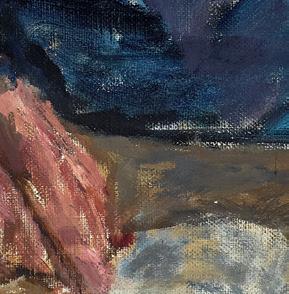

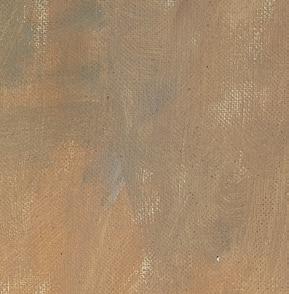
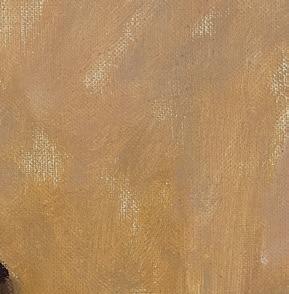
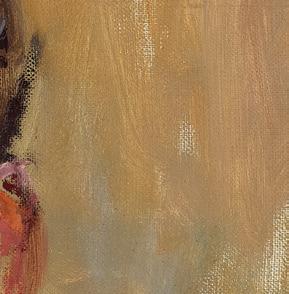
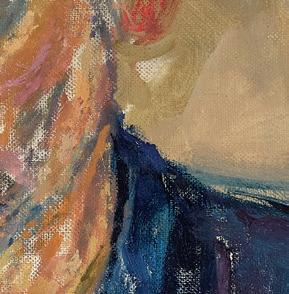
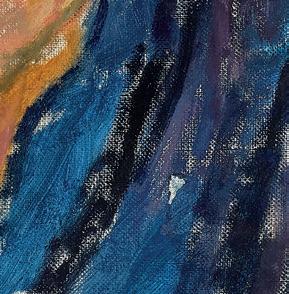

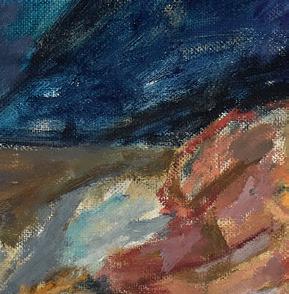

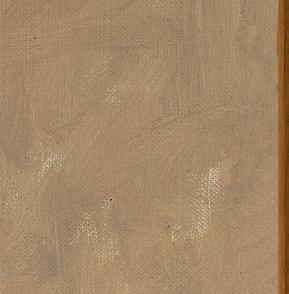
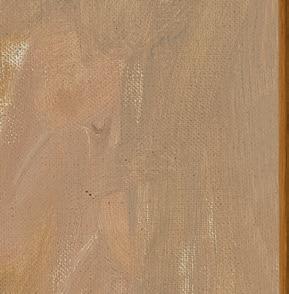
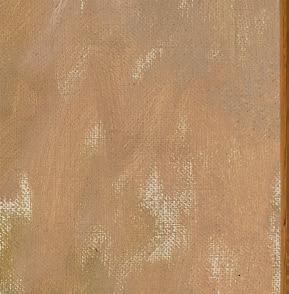
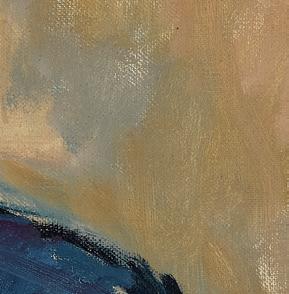
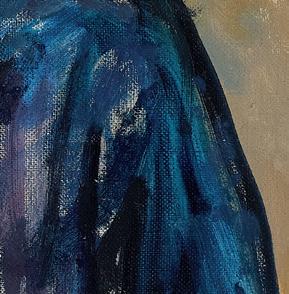
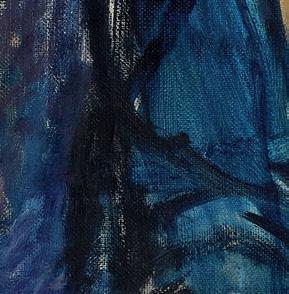
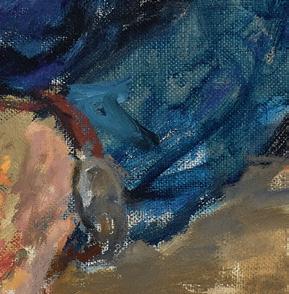
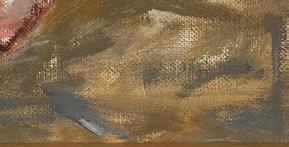




Zbigniew Herbert was born in Lwów, Poland, in 1924, and studied law, economics and philosophy at the universities of Krakow, Torun Kraków, Toruń and Warsaw. His books include Mr Cogito, Report from the Besieged City and Other Poems, Still Life with a Bridle and The King of the Ants. He died in 1998.
J. M. Coetzee was awarded the Nobel Prize for Literature in 2003. He lives in Australia.
Alissa Valles is a poet and a translator from Polish and Russian. She teaches at Boston University.
Selected and introduced by J. M. Coetzee and Alissa Valles
Translations by Joseph Brodsky; by Bogdana Carpenter and John Carpenter; by Czesław Miłosz and Peter Dale Scott; and by Alissa Valles
UK | USA | Canada | Ireland | Australia
India | New Zealand | South Africa
Penguin Books is part of the Penguin Random House group of companies whose addresses can be found at global.penguinrandomhouse.com
Penguin Random House UK ,
One Embassy Gardens, 8 Viaduct Gardens, London SW 11 7BW penguin.co.uk
This collection first published 2024
001
Copyright © the Estate of Zbigniew Herbert, 2024
Translations, with exceptions below, selected from The Collected Poems: 1956–1998. Translation copyright © 2007 by HarperCollins Publishers LLC . Used by permission of HarperCollins Publishers.
Translations of ‘Mr Cogito Thinks of Returning to the City Where He Was Born’, ‘Mr Cogito’s Game’, ‘Mr Cogito on Upright Attitudes’, ‘Mr Cogito – The Return’, ‘Mr Cogito and the Imagination’ and ‘The Monster of Mr Cogito’ copyright © 1993 by Bogdana Carpenter and John Carpenter.
Selection © J. M. Coetzee and Alissa Valles 2024
Introduction copyright © J. M. Coetzee, 2024
Note on the Edition copyright © Alissa Valles, 2024
This publication has been supported by the ©POLAND Translation Program

The moral right of the author of the Introduction and of the translators has been asserted
Penguin Random House values and supports copyright.
Copyright fuels creativity, encourages diverse voices, promotes freedom of expression and supports a vibrant culture. Thank you for purchasing an authorized edition of this book and for respecting intellectual property laws by not reproducing, scanning or distributing any part of it by any means without permission. You are supporting authors and enabling Penguin Random House to continue to publish books for everyone.
No part of this book may be used or reproduced in any manner for the purpose of training artificial intelligence technologies or systems. In accordance with Article 4(3) of the DSM Directive 2019/790, Penguin Random House expressly reserves this work from the text and data mining exception
Set in 10.5/13pt Dante MT Std
Typeset by Jouve (UK ), Milton Keynes
Printed and bound in Great Britain by Clays Ltd, Elcograf S.p.A.
The authorized representative in the EEA is Penguin Random House Ireland, Morrison Chambers, 32 Nassau Street, Dublin D 02 YH 68
A CIP catalogue record for this book is available from the British Library
ISBN: 978–0–241–65461–3
Penguin Random House is committed to a sustainable future for our business, our readers and our planet. This book is made from Forest Stewardship Council® certified paper.
Contents Introduction xi
Note on the Edition xix
from CHORD OF LIGHT (1956)
Two Drops 3
Farewell to September 4
Inscription 5
My Father 6
To Apollo 7
On Troy 9
To Marcus Aurelius 11
Priest 12
Forest of Arden 14
Troubles of a Minor Creator 16
Stool 19
Altar 20
A Parable of King Midas 22
Fragment of a Greek Vase 25
Nike Who Hesitates 27
Fortune-telling 29
Arion 30
from HERMES, DOG AND STAR (1957)
At the Gate of the Valley 32
Touch 35
I Would Like to Describe 37
What Our Dead Do 39
A Knocker 41
Three Studies on the Subject of Realism 42
The Rain 44
Biology Teacher 46
The Seventh Angel 48
On Translating Poetry 50
Rosy Ear 51
Silk of a Soul 53
My City 55
Five Men 57
Drum Song 60
A Little Bird 62
Parable of the Russian Émigrés 64
To the Hungarians 66
Objects 67
The Paradise of the Theologians 67
Hen 67
Painter 68
Hermes, Dog and Star 68
Fish 69
The Sacrifice of Iphigenia 69
From the Technology of Tears 70
A Russian Tale 70
from STUDY OF THE OBJECT (1961)
Wooden Bird 71
Apollo and Marsyas 73
Mona Lisa 75
Drawer 78
Our Fear 80
From Mythology 82
Jonah 83
The Return of the Proconsul 85
Elegy of Fortinbras 87
Naked Town 89
First the Dog 90
Attempt at a Description 91
Study of the Object 92
Pebble 96
Revelation 97
Inner Voice 99
from INSCRIPTION (1969)
Prologue 101
Awakening 104
Path 105
In the Margin of a Trial 106
Preliminary Investigation of an Angel 107
Report from Paradise 109
The Longobards 110
Curatia Dionisia 111
Attempt at the Dissolution of Mythology 112
She Was Doing Her Hair 113
The Passion of Our Lord Painted by Anonymous from the Circle of Rhenish Masters 114 ‘We fall asleep on words’ 115
Why the Classics 117
from MR COGITO (1974)
Mr Cogito Studies His Face in the Mirror 119
Meditations on Father 121
Sense of Identity 122
Mr Cogito Thinks of Returning to the City Where He Was Born 123
Mr Cogito Reflects on Suffering 125
Mr Cogito’s Abyss 127
Mr Cogito and Pure Thought 129
Houses on the Outskirts 131
Mr Cogito Observes a Deceased Friend 133
Mr Cogito Considers the Difference Between the Human Voice and the Voice of Nature 135
Sequoia 137
They Who Lost 138
Mr Cogito Comes Across a Statuette of the Great Mother in the Louvre 139
Caligula 140
Akeldama 142
Mr Cogito Tells of the Temptation of Spinoza 144
Mr Cogito’s Reflections on Redemption 147
Mr Cogito Seeks Advice 148
Mr Cogito’s Game 150
What Mr Cogito Thinks of Hell 154
Mr Cogito on Upright Attitudes 155
The Envoy of Mr Cogito 158
from REPORT FROM A BESIEGED CITY (1983)
What I Saw 160
Mr Cogito’s Soul 162
Lament 164
To the River 165
Old Masters 166
Prayer of the Traveler Mr Cogito 168
Mr Cogito – The Return 170
Mr Cogito and the Imagination 173
To Ryszard Krynicki – A Letter 176
Mr Cogito on Virtue 178
Mr Cogito’s Eschatological Premonitions 180
Photograph 183
The Divine Claudius 184
The Monster of Mr Cogito 188
Regicides 192
Damastes Nicknamed Procrustes Speaks 194
September 17 196
Mr Cogito on the Need for Precision 197
The Power of Taste 203
Report from a Besieged City 205
(1990)
Oaks 208
Livy’s Metamorphoses 210
Mass for the Imprisoned 212
A Small Heart 214
Mr Cogito’s Heraldic Meditations 216
Journey 217
Mr Cogito’s Adventures with Music 220
Speculations on the Subject of Barabbas 226
from ROVIGO (1992)
A Life 228
Mademoiselle Corday 230
Shame 231
Oath 232
Achilles. Penthesilea 234
Rovigo 235
from EPILOGUE TO A STORM (1998)
Grandmother 237
Breviary (I) 239
Breviary (II) 240
Kant. Last Days 241
On a Boy Killed by the Police 242
Lyrical Zone 243
Portrait of the Fin de Siècle 244
Fabric 245
from RECONSTRUCTION OF THE POET (2024)
From Mr Cogito’s Erotica 246
Mandelstam 247
From an Unwritten Theory of Dreams 248
Index of Titles and Translators 251
Zbigniew Herbert was born on 29 October 1924, in Lwów, Poland (now Lviv, Ukraine). During the war years he studied Polish literature at the clandestine university of Jan Kazimierz in Lwów. After the war he moved to Kraków to study law and economy; he also audited courses on philosophy and art history. He was admitted to the Polish Writers’ Union, but resigned from the comfortably subsidized life it provided when, after the Stalinist takeover of 1948, a straitjacket of socialist realism was imposed on the arts, and the humanities faculties of universities were purged of non-Marxist tendencies. His first collection of poems, A Chord of Light, appeared only after the thaw of 1956 had eased censorship.
The clampdown on political activity imposed by the Soviet Union in its satellites, with tight controls over thought and expression, was not the only impediment to a rebirth of autonomous Polish cultural life. In view of the long and undeniable history of Polish anti-Semitism, the slaughter of Jews that had taken place on Polish soil during the war raised questions of the acutest moral relevance to Poland’s future.
‘To write a poem after Auschwitz is barbaric’ (Nach Auschwitz ein Gedicht zu schreiben, ist barbarisch ), wrote Theodor Adorno in 1949 – and here we should remember that Auschwitz lies in Polish Silesia. There was no denying the force of Adorno’s pronouncement, but what exactly did it mean? That Auschwitz had put paid to the ethical pretensions of poetry, and of European high culture in general? That an art equal to the task of speaking for the dead of Auschwitz was not conceivable?
Herbert, whose ethical and aesthetic stance toward Europe and its past had developed during the enforced silence of his twenties,
responded to Adorno’s challenge in a poem, ‘Five Men’, that has been widely anthologized (included here on p. 57). There has to be poetry, even in the darkest of times, he says, because we cannot live without it. By no means does this elementary move checkmate Adorno – and indeed Herbert would later recognize a need to deepen and complicate his defence of poetry – but it did open up a space in which the poet could contest the verdict of history.
Until well into his thirties Herbert led a fringe existence, with none of the rewards that someone of his education and talents might have expected. After 1956 his growing reputation opened up opportunities for travel outside Poland and eventually led to fellowships and visiting professorships in the West. He wrote extensively on European art and architecture but, unlike Czesław Miłosz, elected against exile.
It was in the early 1960s, when I was living and working in England, that I first heard of Herbert: poems of his were read on the BBC Third Programme and published in the journal Modern Poetry in Translation, where the English poet Ted Hughes was an animating spirit. Hughes had attended a poetry festival in Spoleto, Italy, where the work of a new generation of poets from Poland, Czechoslovakia and Yugoslavia had struck him with the force of revelation. Disseminated by Hughes and the influential critic Al Alvarez in deliberately plain translations, the work of Herbert and other poets from behind the Iron Curtain came as a vivifying shock to the rather torpid and insular British poetry scene of the time.
What impressed readers in the West was the directness with which these poets dared to address life-and-death issues, a directness achieved more often than not by strategies of ironic indirection. Read and decoded correctly, their work seemed imbued with the strength of a coiled spring. And that tensile strength seemed to have its source in their personal courage and integrity, as they stood up for the truth of the individual vision against a monolithic orthodoxy. At the plainest level, they offered a lesson in what it could mean to be a poet.
The stubborn, unheroic integrity that characterized Herbert’s life under Communism wove its thread through his poetry too. For the sake of brevity (which is one of the Herbertian virtues) I will call this theme the faithful life. The faithful life is not the same as the life of
faith: the difference between the two (namely that you do not need to have faith to be faithful) might be called central to Herbert’s ethic, were it not for the fact that privileging the faithful life over the life of faith and erecting it into a credo – its own article of faith – would at once qualify it for precisely the kind of sceptical interrogation in which Herbert specialized.
In Herbert’s oeuvre there are a number of poems that turn on an opposition between, on the one hand, purity (purity of theory, purity of doctrine), which he aligns with the divine or angelic, and, on the other hand, the impure, the messy, the human. The best known of these is ‘Apollo and Marsyas’ (1961; p. 73). Apollo, who is a god and therefore without human feelings, flays alive the satyr Marsyas, and reacts to Marsyas’ prolonged howl of agony with a fastidious shudder. Apollo may have won the musical contest – Marsyas is undergoing the fate of the loser – but the howl that comes from Marsyas’ throat, rudimentary though it may be as music, expresses every atom of his exposed (that is, skinned) human (that is, ungodlike) being with a petrifying intensity that the god cannot equal.
This is only one of a number of poems that take the side of the human in its unequal contest with the divine. The world that God has created, the world that carries the imprint of divine reason, may be perfect in theory but is hard to bear in reality. In ‘At the Gate of the Valley’ (p. 32), even the next world turns out to be pretty unendurable by human standards. As new arrivals discover at the heavenly gates, not the tiniest memento of their old life will be allowed to accompany them; even babies are to be removed from their mothers’ arms, ‘since as it turns out / we shall be saved each one alone’. God’s Heaven turns out to have an uncanny resemblance to Auschwitz. What is wrong with systems, to Herbert, is that they are systems. What is wrong with laws is that they are laws. Beware of angels and other executives of perfection.
Marxism, one need barely point out, is deeply coloured by Christian eschatology. The world of achieved communism in which each will receive according to his need, and in which the state (earthly power) will have withered away, is, literally, heaven on earth. Herbert’s satirical reports on heaven are also, accordingly, reports on life in the workers’
xiii
state. In heaven, because the materials to hand are human and therefore imperfect, certain compromises have to be made. Forgone are the luminous circles, the choirs of angels, et cetera; what we end up with is an afterlife not too different from life in People’s Poland (‘Report from Paradise’, p. 109).
The richest of the poems of the afterlife comes from Report from a Besieged City (1983), the sixth of the nine collections Herbert published in his lifetime. In ‘Mr Cogito’s Eschatological Premonitions’ (p. 180), the poet’s persona (mask) Mr Cogito reflects on life after death and on what kind of resistance he will be capable of mounting when the time comes at last for him to confront the heartless, bloodless angels and their demand that he give up the human senses through which he has apprehended the world. Smell, taste, even hearing – these he will be prepared to relinquish. But to retain sight and touch he will be prepared to suffer anything, including torture.
to the end he will defend the splendid sensation of pain and a couple of faded images in the pit of a burned-out eye.
Who knows, he thinks to himself, maybe the angelic interrogators will at last grow tired and give up, declaring him ‘unfit / for heavenly / service’, and allowing him to return to earth.
As in the case of Marsyas tortured by Apollo, the angels believe themselves omniscient as well as omnipotent; but in fact the experience of suffering is beyond their ken, just as assuming powerlessness is beyond their powers.
(It is worth noting that in the heavenly pantheon there is in fact a god who commits himself to suffering in a human way, without relief, unto death. This god, the Christian Jesus, does not figure in Herbert’s poetic universe.)
As with the earlier attacks on doctrines of perfectibility, ‘Mr Cogito’s Eschatological Premonitions’ uses the knife-turn of paradox in arguing for the right to feel pain. But in this late poem Herbert goes beyond the neat irony and lapidary perfection of such earlier pieces
as ‘Report from Paradise’. Its last lines open out to a world ‘along an overgrown path / on the shore of a white sea / to the cave of the beginning’ that is as strange, as beautiful and as haunting as the world we mortals inhabit: a world that comes to us through our senses; a world that we cannot forget and cannot bear to leave, although we must.
There are several dozen Mr Cogito poems by Herbert’s hand, across several collections. Mr Cogito started his life in 1974 as a selfdeprecating persona for the poet, not too different in spirit and style from the wry but hapless little-man cartoon characters we find in Polish and Czech cinema of the Cold War years.
The risk of investing too heavily in this persona – the little man defined by his powerlessness and his reliance on irony, the weapon of the powerless – was, I suspect, clear to Herbert from the beginning. A prose poem from 1961 (‘From Mythology’, p. 82) spells out the danger. The poem takes the form of a brief history of religion, in three stages. In the third and last stage – irreligion – people carry in their pockets votive statues of the god of irony, made of salt. ‘Then came the barbarians. They too valued highly the little god of irony. They would crush it under their heels and add it to their dishes.’
The little god of irony, secretly believed by his devotees to be allpowerful, turns out to be powerless against the barbarians. Worse than that: the barbarians relish him, or at least use him as relish. To translate the allegory baldly: the ironist runs the risk of slipping into an insidious modus vivendi with the powers that be in which, as long as he tacitly consents not to emerge from behind his masks or masks, they will pretend not to see who he ‘truly’ is. So much for irony, not only as a political strategy but as an ethical refuge, a way of life.
If Mr Cogito is not to be crushed under the heel of the barbarian and used as a condiment, if the Mr Cogito poems are not to suffer the fate of finding themselves absorbed into the high-school syllabus, then Mr Cogito must be more than just Mr Zbigniew Herbert – homme moyen sensuel, rhymester and Polish citizen – viewed in the shrinking and distorting glass of irony.
In an important respect, Mr Cogito is like Don Quixote, a fictional creation whose creator only gradually comes to realize how large a
xv
poetic weight he is capable of bearing. Some of the early Mr Cogito poems are slight and forgettable; but ‘The Envoy of Mr Cogito’ (1983; p. 158) is one of the great poems of the twentieth century.
The not entirely transparent title invites one to read this poem as an envoi addressed both to the ensemble of Mr Cogito poems and to the poet-self behind that persona, at last unmasking himself and speaking without irony. The poem can be read by itself, and even by itself its force is undeniable; but for its proper effect it needs to be read as the last of the Mr Cogito series, looking back on its avatars and stripping them of their ironic disguises in the cause of the uttering of truth.
Reading it in this way, as a demand – indeed a command – to the self to persist in the faithful life even in the absence of any credible faith, one must be struck by its rhetorical grandeur and moral ferocity, not qualities one usually associates with Herbert, but potentialities that one may well have sensed from the beginning, behind all the irony.
Regret at a life not fully lived, and doubt that his achieved work has compensated for that failure, becomes a gnawing theme in Herbert’s late poetry. Of course the grey Soviet empire made it hard for any of its subjects to live a full life. But to so nagging and lucid a selfdoubter as Herbert, shifting the blame from oneself on to history is not a morally acceptable strategy. In ‘Why the Classics’ (1969; p. 117) Thucydides makes no excuses for his failure as a general. He faces his judges, reports the facts, accepts his punishment without murmur.
Herbert’s verdict on his own life comes in a pair of poems from 1983, ‘Mr Cogito and the Imagination’ and ‘To Ryszard Krynicki – A Letter’ (pp. 173 and 176) in which, crucially, he identifies his prime virtue as a moral being – namely, his steady, undeceived vision of the world – as also his prime limitation as a poet. ‘Mr Cogito’s imagination / has the motion of a pendulum / it crosses with precision / from suffering to suffering’. For this Mr Cogito ‘will be numbered / among the species minores ’. First article of the indictment, then: an imagination, a view of the world, that is constricted, monotonous. Second article: ‘so little joy . . . in our poems Ryszard,” he writes to his friend Krynicki, ‘too few glimmering twilights mirrors wreaths
Of course, there is irony at work here, a saving irony. The poem that mocks Mr Cogito for confining himself to tautologies – ‘a bird is a bird’ – also implicitly invites one to ask, Yet, who besides Pan Cogito, who besides Herbert, was saying in 1956: ‘slavery is slavery’?
But irony can come wrapped in irony. The decision to become an ironist for life can, ironically, backfire; or, to recall the extended figure in ‘A Small Heart’, the bullet that you fired decades ago can go all the way around the globe and hit you in the back. The moral sense, rudimentary but infallible, that you pretended to disparage but really affirmed when, back in the 1950s, you wrote the poem ‘A Knocker’ (p. 41):
my imagination is a piece of board . I thump on the board and it prompts me with the moralist’s dry poem yes – yes no – no
– begins to sound worn out by the 1980s. What has been the point of a life spent thumping the same old board?
This is the pessimistic question that Herbert, in his late years, asks in poem after poem as he looks back over his life. But is it the right question to be asking? There are alternative ways of understanding why, reflecting on the post-war decades from the perspective of the 1980s, a poet of Herbert’s kind should have felt frustrated and defeated. One instance: as long as slavery was slavery – during the bleak years of Soviet overlordship – Mr Cogito knew his way (and knew his vocation). But when slavery modulated into subtler forms of servitude, as in the brief reform era of the early 1970s, when shops were suddenly stocked with imported goods paid for with borrowed money – an era foreshadowing Poland’s post-1989 entry into the world of globalized consumerism – Mr Cogito’s armour of moral certainty failed him. In a poem entitled ‘The Monster of Mr
xvii ecstasies’. Or, as he puts it in an even more searingly personal poem, ‘memory too large / and a heart too small’ (‘A Small Heart’, p. 214).
Cogito’ (p. 188) he foresees his defeat. The monster that he bravely sallies out to confront ‘eludes definitions’:
it’s like an immense depression spread out over the country it can’t be pierced with a pen with an argument or spear
There is a further quality of his hard-to-describe monster that Mr Cogito does not mention: that it has managed to transcend, or at least get beyond, good and evil, and is thus beyond the reach of the moralist’s yes/no. To the monster that hangs over the land, all things are good in the sense that all things are goods, consumables, including the ironist’s little salt artefacts.
The last years of Herbert’s life were not happy. His health declined. He was in need of psychiatric care, which he often resisted. He continued to write and publish, but the poetry of his late years lacked the old urgency, the old musical-syntactical tension. Awareness of his failing powers no doubt contributed to his distress. He died on 28 July 1998 at the age of seventy-three.
If Herbert felt, towards the end of his life, that he had given too much of himself to his art, had lived too little, and if he felt moreover that his art had been too narrow, had not always measured up to the challenge of the times, that is a story one can take cum grano salis. The true Zbigniew Herbert is constituted by a body of poetry that extends over four demanding decades of the history of modern Europe. His response to those demands was to remain stubbornly, monotonously faithful to the human – not a timeless, classical ideal of the human, but the flesh-and-blood human, stumbling in the dark across a landscape littered with the bones of other brave men, upholders of the faith: Gilgamesh Hector Roland.
J. M. Coetzee
In 1968, Al Alvarez introduced the Penguin Selected Poems of Zbigniew Herbert as a powerful counter to the prevailing trend in poetry in Western Europe and the United States. Against contemporary poets who created autonomous internalized worlds and chronicled private ‘breakdown and madness’, Alvarez asserted Herbert’s essential sanity in the face of the violence and cruelty of war and the totalitarian state, and praised his disciplined use of irony in the service of balance and proportion. After more than half a century I see little to argue with in this basic characterization of the ‘backbone’ of Herbert’s work as a controlled ‘tension between the ideal and the real’. If anything, for later generations suckled on the theoretical death of the self, of the author and of objective reality, Herbert’s ability to acknowledge the precarious limits of individual perception while also testifying to the beauty and pain of the objective world is even more valuable.
For poets grappling with new wars of identity and with the poetics of trauma, Herbert offers an attractive alternative, and the poems he wrote in the decades after the first Penguin selection only make this alternative more explicit and accessible. In ‘Sense of Identity’ the speaker seeks to ally himself not with a group or tribe but with a stone – an object subject to decay like him, nothing more nor less. In ‘Mr Cogito Reflects on Suffering’, while allowing its absolute reality, instead of elevating suffering to a marker of distinction he suggests we ‘try to make of it/ a thing or a person’. Mr Cogito is such a person, and the poem itself is such a thing. What the poet does not say is that art conceived in these terms is – or can be – a true hero’s journey: a path of intellectual, emotional
and spiritual discipline demanding a relentless battle with all the forces, internal and external, that lead away from reality.
An undeniable part of reality, to Herbert, is the human longing for various forms of the ideal, whether spiritual, political, erotic or aesthetic, but it is always accompanied in his writing with the anchor, comic or tragic, of human flaw and failure. The philosopher Charles Taylor in Sources of the Self aptly calls Herbert’s poetics an ‘austere discipline of the imagination’ and counts it as one of the most fertile contributions to modern thought. Read in this light, the poem ‘Mr Cogito and the Imagination’ is less a self-criticism by the poet and more a condemnation of the Romantic tradition of creative imagination as akin to nature. In Herbert, the sensual experience of objective reality can act as a corrective to both unfettered imagination and rigid rational systems.
The reader who comes to Herbert in 2024, the centenary of his birth in Lviv (a city which is now again at war) has access to a great number of sources on the historical context in which this poet developed, but there still remain large swathes of Herbert’s world beyond the reach of a non-Polish audience. The literary matrix from which Herbert emerged is still only very partially accessible to English-language readers. In one of his last writings Herbert, ‘always balancing between sublimity and absurdity’, sought to situate himself in the Polish poetic tradition. ‘A Word for the Poetry Reading at the National Theater, May 25, 1998’ is a series of remarks in verse and prose in which he claims a lineage that leads back from his close contemporaries Tadeusz Gajcy and Krzysztof Kamil Baczyński, both of whom perished in the Warsaw Uprising of 1944, through the nineteenth-century poets Cyprian Norwid and Juliusz Słowacki, to the eighteenth-century religious poet Franciszek Karpiński and the Renaissance poet Jan Kochanowski, whose work was for Herbert the source of Polish poetry, ‘born in kingly chambers with the marks of strength, simplicity and dignity’.
Kochanowski now exists in English in the fine translations of Stanisław Barańczak with Seamus Heaney (Laments), there is a selection of Norwid’s poetry available in the translation of Danuta Borchardt with Agata Brajerska-Mazur, and Bill Johnston has enlarged the canon with powerful new versions of Mickiewicz, Słowacki and
Baczyński. Yet much of Herbert’s lyrical lineage is still inaccessible to English readers. This is a pity, but not a catastrophe, because, like other testamentary gestures, Herbert’s choice of ancestry on one occasion says more about how he wished to be seen toward the end of his life than about how he became the poet he was. For most of his writing life, Herbert was in fierce contention with the powerful Romantic strain in Polish poetry, represented in different ways by the first four poets he names. Because this strain often entailed a view of Poland as ‘an innocent victim suffering for the sins of humanity’, Herbert subjects the Christian narrative to the same treatment that he gives the stories of Greek antiquity, challenging and subverting them from odd angles, as in ‘Reflections on the Subject of Barabbas’, ‘In the Margin of a Trial’ and ‘Mr Cogito Reflects on Redemption’.
Czesław Miłosz, Herbert’s first translator, goes unmentioned in the ‘Word’, but as a poet he was profoundly important to Herbert. Influences are by their nature difficult to define, but there is no doubt that, for a time, Herbert considered Miłosz the best living Polish poet, and the barbaric uses of irony are already examined in such poems as Miłosz’s ‘Child of Europe’, written in New York in 1946. In his poems of the wars year and the aftermath, Miłosz demonstrated how to meet the bitter grief and despair of postwar Europe with unflinching intellectual rigour and a passionate eye, a hunger for reality as it is present in physical objects and concrete traces of human history. His translations of Herbert formed part of a generous project of offering modern Polish poetry as an artistic, intellectual and spiritual resource in English. In turn, it was a student of Miłosz’s, Bogdana Carpenter, who with John Carpenter translated subsequent volumes of Herbert’s poetry and prose and who remains one of the most important interpreters of his work in the English-speaking world.
Reviewers of Herbert’s early books in Poland singled out as distinctive his return to Greek and Roman myth and a restraint identified as classical. This was merely the first round of interpretation – in the years that followed the publication of Chord of Light and Hermes, Dog and Star, critical attention expanded and shifted to Herbert’s taste for historical and philosophical paradox, and later to his unusual modes of metaphysical inquiry. Yet in his writing on
Herbert, Stanisław Barańczak still complained of a persistent tendency among critics to simplify a figure who, despite the openness of his address, retains a core of ambiguity. In one of the most acute twenty-first century readings of Herbert, the critic Marek Zaleski explores his affinity with the trickster. As the wall separating Polish culture from that of the rest of Europe continues to crumble, one can only hope for more cross-fertilization of readers and ideas.
Herbert’s life has been chronicled in detail in Polish, most recently in a two-volume biography by Andrzej Franaszek. The Western reader may consider it a piece of good fortune, however, that the political battle over Herbert’s legacy to be fought in post-Communist Poland has been largely absent from the Western reception of his work. It is clear enough from his work that, when in full health, he was immune to tribalism of both the political right and left. That he suffered periods of serious mental illness will interest those who care about him, but acquaintance with the facts serves chiefly to heighten a sense of the supreme achievement of his work.
Herbert’s ‘On Translating Poetry’ captures an impulse that contains both a desire to know and a will to possess. Herbert’s own translations – of Georg Trakl, Sylvia Plath and others – were born from powerful attraction and rivalry, the eros that has driven poetry from its beginnings. He turns the work of others less to his own purposes than many poet-translators do. In choosing to encounter the foreign poem as he would an object, to be contemplated and coaxed from its privacy with courtesy and ingenuity, he offers an example worthy of emulation. I was fortunate enough to find Herbert early in life, in a tattered copy of the first Penguin edition with a dedication to my mother and an author’s sketch of a bee circling a flower. At the time I started to translate a few of Herbert’s letters for an anthology edited by Adam Zagajewski, there were no published translations of many of his earlier poems or of his final volumes of poetry and essay. At the University of Chicago I found generous support and scrutiny from my present co-editor.
I am sometimes asked what of Herbert is lost in translation. One example from a great poem shows the sacrifices implicit even in the most accomplished interpretation. In ‘Apollo and Marysas’ the phrase
stos pacierzowy is not the ordinary Polish anatomical name for the spine, kręgosłup; it is an archaism. Stos pacierzowy carries strong echoes of stos – a martyr’s stake – and of stos pogrzebowy – a funeral pyre, and also of pacierz, a series of prayers (the Polish etymology leads back to a perceived likeness between the chain of vertebrae and the beads of a rosary). ‘The backbone of Marsyas’ is one solution to the problem. A closer translation would be ‘spinal column’, but that in turn suggests monumental architecture, a more Apollonian image than the translators may have thought appropriate. ‘Backbone’ pushes the line toward physical rawness. The choice is repeated in the Milosz/Scott translation of the poem Objawienie, ‘Revelation’, where in the attempt to ‘touch the essence’ the ‘backbone’ briefly fills with ‘quiet certitude’. The choice in both cases has to do with the delicate placing of a word or phrase on the spectrum of the raw to the cooked, the visceral to the metaphysical. Herbert’s poetry is full of such choices. Polish is a beautiful language. One of its beauties is the way it carries its musical vowels in thick nests of consonants – its combination of tenderness and roughness. English is a good partner for Polish in many regards, though the relative inflexibility of word order in modern English also means the Slavic play of inversions is often lost, as are the shades of comedy and irony expressed through case endings. The texture of Polish is refractory – it doesn’t pave over bumps or shun thickets of sibilants – as in the poem ‘Journey’ where Herbert invokes them: ‘repeat before sleep the comic sounds of your tongue/ że – czy – się’. If it is true that, as Herbert’s friend Aleksander Wat argued, Polish is a language more suitable for sculpture than painting (compared to French), Herbert reminds one of the sculptors of Easter Island’s moai statues – minimalist yet massive, their oversize heads grave and slightly comical. His work will continue to look us, unblinking, in the eye.
Alissa
Valles
The editors owe a great debt of gratitude to Katarzyna Herbert, to the estate of Czeslaw Milosz, to Peter Dale Scott, to John and Bogdana Carpenter, to Ecco/HarperCollins, and to the estate of Joseph Brodsky for permission to reprint the poems in this volume.
No time to grieve for roses, when the forests are burning Juliusz Słowacki
The forests were on fire –they however wreathed their necks with their hands like bouquets of roses
People ran to the shelters –he said his wife had hair in whose depths one could hide
Covered by one blanket they whispered shameless words the litany of those who love
When it got very bad they leapt into each other’s eyes and shut them firmly
So firmly they did not feel the flames when they came up to the eyelashes
To the end they were brave
To the end they were faithful
To the end they were similar like two drops stuck at the edge of a face
The days were the colour of amaranth shining like the lance of an uhlan
Over the megaphones was sung an anachronistic ballad about Poles and bayonets
A tenor struck like a riding-whip and after every verse a list was published of live torpedoes
Who nota bene through six years of war were to smuggle lard –pitiful unexploded bombs
The commander raised his eyebrows like a mace and chanted: not one button
The buttons mocked: We shan’t give we shan’t give the boys sewn flatly on to the heath